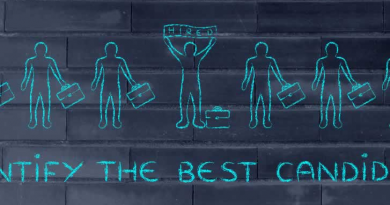How To Find Out What People’s Values Really Are
Values tell you how people are likely to behave
When I am working with clients on objectives, it often helps to clarify the difference between Values, Behaviours and Objectives:
- Objectives are what you need to achieve
- Behaviours are how you do it
- Values are why you do it that way
Know what their values are
When we are recruiting or dealing with new people it can be very helpful to find out what their values are. The key is to ask the right questions.
Just ask the right questions
Most people will happily tell you if you just ask. This is because we all tend to think that our values are right and are shared by everyone else.
How to ask questions to discover values
Get the individual talking about something they have done, preferably in a difficult situation. Then ask them why they did it that way. It’s a very useful interview technique.
An example of how to find out values
I once observed a candidate, a woman called, Esme, doing a role-play, a task that formed part of an interview process. She wore a bright red suit and matching stilettos. She was playing the role of an administration manager dealing with a surgeon, Dr Kildare, her task was to persuade him to meet the new targets.
Within a few moments she was shouting and screaming at a surprised Dr Kildare. Then she lifted him up by his lapels. His feet were dangling in the air.
After the task the director and I interviewed her. Up till this point she had been the leading candidate. I asked her why she had handled the meeting with Dr Kildare as she had.
She would have got the job
Had she responded that she was very sorry for the way she had behaved, she was just nervous and it had not gone as she had planned, she probably would have got the job. However, that was not what she said.
‘You can’t negotiate when you only have 25 minutes with someone.’ She told us authoritatively,
This told us all we needed to know about her values. She didn’t get the job.
Another example of how to discover values
More recently I was interviewing candidates for a client and we asked one of them why they had lied to a client. ‘Well, they’ll never know.‘ She said with a shrug. The candidate who got the job, when asked about her behavior in a rather difficult situation had quite a different response: ‘One you’ve promised something to someone, that’s it. You must keep your promise.’
Find our more about questions and which ones to ask in this booklet:
“Questions made easy”
The more experienced I get, the more I realize that questions are the answer to most problems and difficult situations. Using questions instead of telling people things is more effective in most communication situations from negotiation to learning, from interviewing to coaching and in virtually all difficult situations with anyone who is behaving badly.
This booklet, for just £6.25, contains my top 22 questions gathered over many years, variations on them and when and where to use them.
Armed with these you can deal with most situations. Some are gems that will work in many different situations (so you will find the same question in several sections); others are for more specific use.
In this booklet you will find:
- Four questions to help you to identify objectives and goals
- What not to ask in performance reviews and appraisals (and why)
- Six questions to ask in performance reviews and appraisals
- Questions to help you formulate development objectives
- 31 questions for Coaching & Problem-solving
- 2 questions to establish training needs and learning objectives
- The questions not to ask when establishing skill levels
- 10 questions to find out what someone can really do
- Questions to help learning including a worked example
- Questions for learning reviews
- Questions for when your mind goes blank
- Questions for panics
- Questions for dealing with situations when someone has behaved badly
- Questions for Interviews to identify skills and behaviors
- Questions for interviews to identify values
- Questions for dealing with performance issues
- Questions for when you need answers, action or help (and what not to ask)
- Questions to get decisions
- Questions to persuade others
- Questions for sales situations (with a worked example)
- Questions for negotiations
- Tips on the easy ways to come up with the right questions and get the right answers
- A summary of the 21 standard questions you can modify to suit your situation




